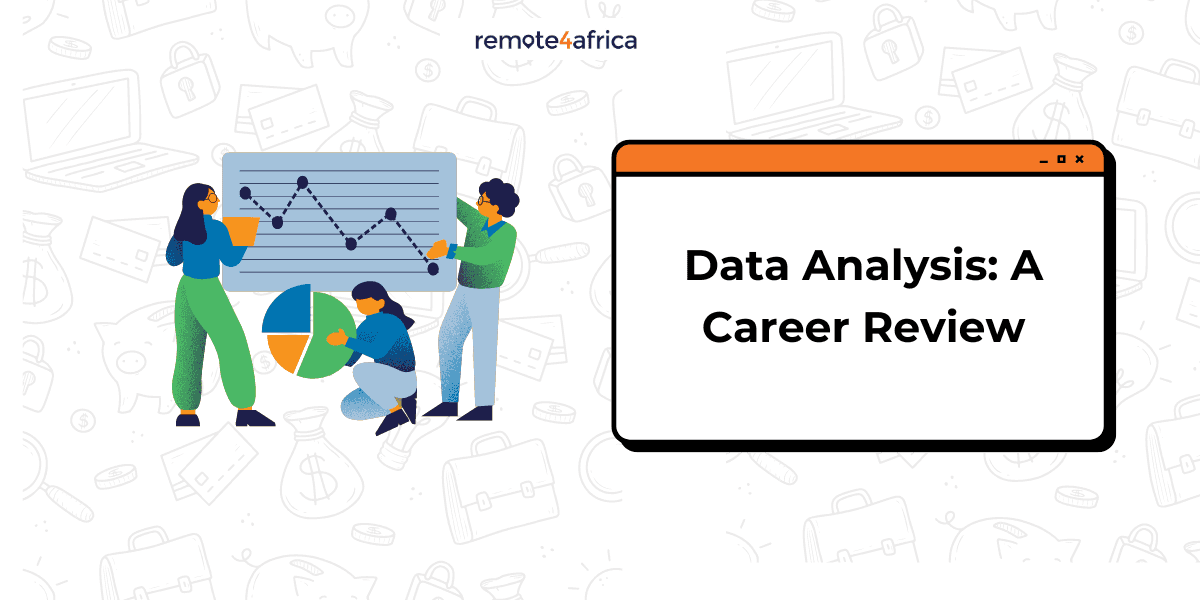Posted on Sep 25
2. Mid-Level Positions
3. Senior-Level Positions
4. Executive Roles
5. Specialized Roles
6. Industry-Specific Roles
Data Analysis: A Comprehensive Career Overview

Data analysis is the systematic application of statistical and logical techniques to describe, summarize, and evaluate data. Data analysis involves collecting, processing and interpreting data to derive meaningful insights that inform decision-making. This transformation allows organizations to make informed decisions, identify trends and solve problems. It spans various industries, including finance, healthcare, marketing, and technology.
Most Data analysts hold a bachelor’s degree in fields like statistics, mathematics, computer science or a related field. Advanced degrees like Masters or PhD's may enhance job prospects.
Data Analysis Career Paths
Data Analysis is a rapidly growing field with various career paths. Here are some of the most in-demand roles:
- Entry-Level Positions
- Junior Data Analyst
- Data Technician
- Data Quality Analyst
2. Mid-Level Positions
- Data Analyst
- Business Analyst
- Data Engineer
3. Senior-Level Positions
- Senior Data Analyst
- Data Scientist
- Analytics Manager
4. Executive Roles
- Chief Data Officer
- Head of Analytics
- Data Architecture Manager
5. Specialized Roles
- Machine Learning Engineer
- Data Visualization Specialist
- Data Governance Specialist
6. Industry-Specific Roles
- Financial Analyst
- Marketing Analyst
- Healthcare Analyst
Key Skills Required
Technical Skills
- Statistical Analysis: Understanding of statistical methods and tools.
- Data Manipulation: Proficiency in programming languages( Python, R) and data manipulation libraries(Pandas, NumPy)
- Data Visualization: Ability to create visual representations using tools like Tableau, Power BI, or Matplotlib.
- Database Management: Knowledge of SQL for querying databases and managing data.
- Machine Learning Algorithms: Understanding supervised and unsupervised learning, regression, classification and clustering.
Soft Skills
- Critical Thinking: Analyzing data critically to draw valid conclusions.
- Problem-Solving: Ability to approach complex issues and devise effective solutions.
- Communication: Translating complex findings into actionable insights for non-technical stakeholders.
- Time Management: Prioritizing tasks and meeting deadlines.
- Teamwork: Collaborating with cross-functional teams.
Certifications
- Certified Analytics Professional(CAP)
- Certified Data Scientist (CDS)
- Google Cloud Certified - Professional Data Engineer
- Microsoft Certified: Data Scientist Associate
Business Skills
- Domain expertise: Understanding of a specific industry or business function.
- Business strategy: Aligning data analysis with organizational goals.
- Communication: Presenting complex data insights to non-technical stakeholders.
- Project management: Managing data analysis projects and timelines.
Industry Applications
Finance and Banking
Data analysis plays a vital role in the finance and banking sector. It helps in risk management by analyzing credit risk, market risk, and operational risk.Data analysis also aids in portfolio optimization, maximizing investment returns, and detecting fraudulent transactions. Additionally, customer segmentation enables tailored financial services.
Healthcare
Data analysis improves patient outcomes by analyzing treatment effectiveness and predicting disease risk. Medical research relies heavily on data analysis to understand clinical trial data. Healthcare management also benefits from data analysis, optimizing resource allocation and streamlining operations.
Marketing and Retail
The marketing and retail industries utilize data analysis to understand customer behavior preferences, and purchasing patterns. Market segmentation enables targeted advertising , while campaign optimization measures advertising effectiveness. Sales forecasting predicts revenue, helping businesses make informed decisions.
Manufacturing and Supply
Manufacturing and supply chain management rely on data analysis for quality control, inventory management, and supply chain optimization. Predictive maintenance reduces equipment downtime, increasing overall efficiency.
Government and Public Policy Agencies
It uses data analysis to understand economic trends, evaluate policy effectiveness, and identify public health trends. Crime analysis helps law enforcement agencies identify patterns and hot-spots.
Career Advancement opportunities
Entry-Level Advancements
As data analysts gain experience, they can move into senior analyst roles or specialized positions like data scientist or business intelligence analyst. These roles involve leading projects, developing complex models, and collaborating with stakeholders. Professionals can also transition into related fields like data engineering, machine learning, or data visualizations.
Mid-Level Advancements
Mid-Level data analysts can advance to leadership positions, such as team lead or manager, overseeing data analysis teams and projects. They can also specialize in specific industries, like finance or healthcare, or explore consulting roles. Additionally, mid-level professionals can pursue certification like Certified Data Scientist or Certified Analytics Professional to enhance their credentials.
Academic Advancements
Data analysts can pursue academic careers, teaching data science or related courses. They can also conduct research, publishing papers and presenting at conferences. Professionals can also pursue doctoral degrees, advancing the field of data analysis.
Entrepreneurial Advancements
Data analysts can start their own businesses, offering data analysis service or developing data-focused products. They can also create and sell online courses, ebooks, or podcasts, sharing their expertise with a broader audience.
Consulting Advancements
Data analysts can transition into consulting roles, helping organizations improve their data analysis capabilities. They can work with top-tier consulting firms or start their own practices.
Conclusion
A career in data analysis offers diverse opportunities across various sectors, combining technical expertise with critical thinking and problem-solving skills. Continuous learning and adaptability are essential for success in this dynamic field.
Remote Jobs for Data Analysis
S
New
Feb 20
I
Internet Software & Services Company
Retail Category PlannerHybrid Remotefulltime
Pretoria, Gauteng, South AfricaFeb 19
H
Human Resource Services Company
HR Senior Specialist100% Remotefulltime
Egypt, Argentina, Morocco, Ethiopia, KenyaFeb 17
I
Impact Manager - Reporting, Data and Analytics (Acumen East or West Africa)
Hybrid Remotefulltime
Nairobi, Nairobi, Kenya, Lagos, NigeriaFeb 17
I
Internet Software & Services Company
Business Systems Analyst, Marketing100% RemotefulltimeAnywhere in the World
GlobalFeb 17
Related Resources